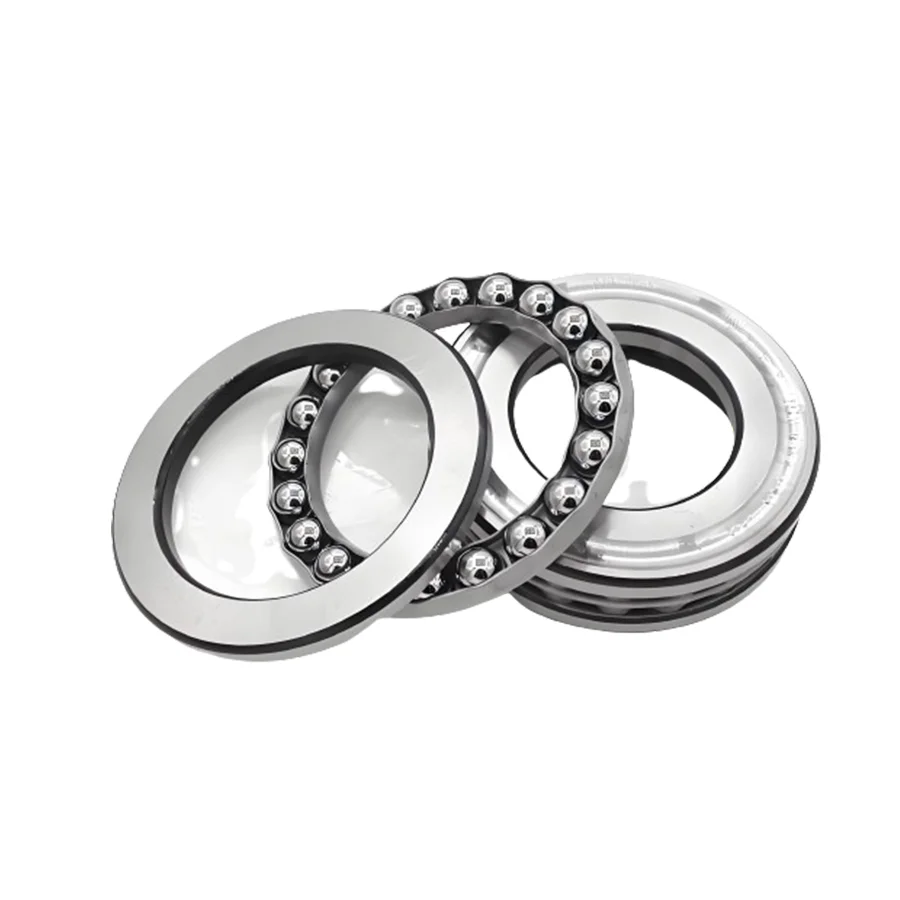Thrust ball bearings play a critical role in supporting axial loads in rotating machinery, ensuring smooth operation and long service life. Selecting the right thrust ball bearing is essential for maximizing efficiency, minimizing wear, and avoiding costly downtime in industrial applications. From chemical processing to bio-fermentation equipment, understanding the technical requirements of your system is the first step toward an optimal bearing choice.
Sawei Equipment Technology specializes in developing complete process equipment solutions, particularly for the agrochemical industry (including phosphoric acid, sulfur, ammonium phosphate, and potassium sulfate compound fertilizer production) and the biological fermentation sector, focusing on industrial environmental recovery systems such as carbon-containing exhaust and waste oil recycling. Their expertise underscores the importance of selecting high-quality components, like thrust ball bearings, for demanding industrial environments.

1. Understand Load Requirements
Thrust ball bearings are designed primarily to handle axial (thrust) loads, but some applications may also introduce radial forces. When choosing a bearing, consider:
-
Axial load magnitude: Ensure the bearing can safely support the maximum expected load.
-
Load direction: Confirm whether the bearing will be subjected to uni-directional or bi-directional thrust.
-
Operating conditions: High speeds or fluctuating loads require bearings with appropriate dynamic load ratings.
Sawei Equipment Technology’s process equipment often involves high axial loads, such as mixers in fertilizer production or agitators in bio-fermentation systems, making the correct selection of thrust bearings vital.
2. Consider Speed and Operating Conditions
Thrust ball bearings have speed limits dictated by design, lubrication, and material. Key factors include:
-
Rotational speed of the shaft
-
Temperature range during operation
-
Exposure to corrosive or abrasive environments
For example, in the phosphate and sulfate fertilizer industry, bearings may be exposed to chemical residues or dust. Selecting a bearing with corrosion-resistant materials and proper seals ensures longevity and reliability.
3. Material Selection
The material of a thrust ball bearing affects durability, corrosion resistance, and load capacity:
-
Chrome steel (GCr15): Suitable for most standard applications, offering high hardness and load capacity.
-
Stainless steel: Ideal for corrosive or high-moisture environments, such as biological fermentation tanks.
-
Ceramic or hybrid bearings: Used in high-speed or extreme conditions for reduced friction and thermal expansion.
Sawei Equipment Technology’s equipment, such as agitators for waste gas recovery or bio-fermentation, often requires bearings that can withstand corrosive gases and fluctuating loads, making material selection critical.
4. Bearing Type and Design
Thrust ball bearings come in several designs:
-
Single-direction thrust bearings: Support axial loads in one direction only.
-
Double-direction thrust bearings: Handle axial loads in both directions, ideal for reversible shafts.
-
Angular contact thrust bearings: Accommodate combined axial and radial loads for more complex applications.
Matching the bearing design to your equipment ensures optimal performance and prevents premature failure. For instance, fertilizer granulation machinery often uses single-direction thrust bearings to handle axial pressure during rotation.
5. Lubrication and Maintenance
Proper lubrication extends the life of thrust ball bearings significantly. Consider:
-
Type of lubricant: Grease or oil, depending on operating speed and temperature.
-
Lubrication intervals: High-load or high-temperature applications require more frequent maintenance.
-
Sealed or open design: Sealed bearings reduce contamination risk, which is important in chemical and bio-processing equipment.
Sawei Equipment Technology ensures that all bearings in their process equipment are properly lubricated and protected, contributing to reliable and long-lasting operation.
6. Supplier Reliability
Choosing a reliable bearing manufacturer is as important as technical specifications. Look for suppliers who:
-
Provide detailed technical support and selection guidance
-
Offer high-quality, standardized products
-
Have experience in industrial applications like chemical processing and environmental recovery
Sawei Equipment Technology works closely with trusted bearing suppliers to ensure that every component in their fertilizer production and bio-fermentation systems meets rigorous quality and performance standards.
Conclusion
Selecting the right thrust ball bearing requires careful consideration of load requirements, speed, materials, bearing design, lubrication, and supplier reliability. For industrial processes such as fertilizer production and bio-fermentation, using high-quality bearings ensures operational efficiency, safety, and longevity.
By combining the right thrust ball bearings with precision-engineered equipment from Sawei Equipment Technology, manufacturers can optimize their machinery for reliability, performance, and minimal downtime, achieving consistent results across demanding chemical and environmental applications.
www.swasps.com
Jiangsu Sawei Equipment Technology Co., Ltd.